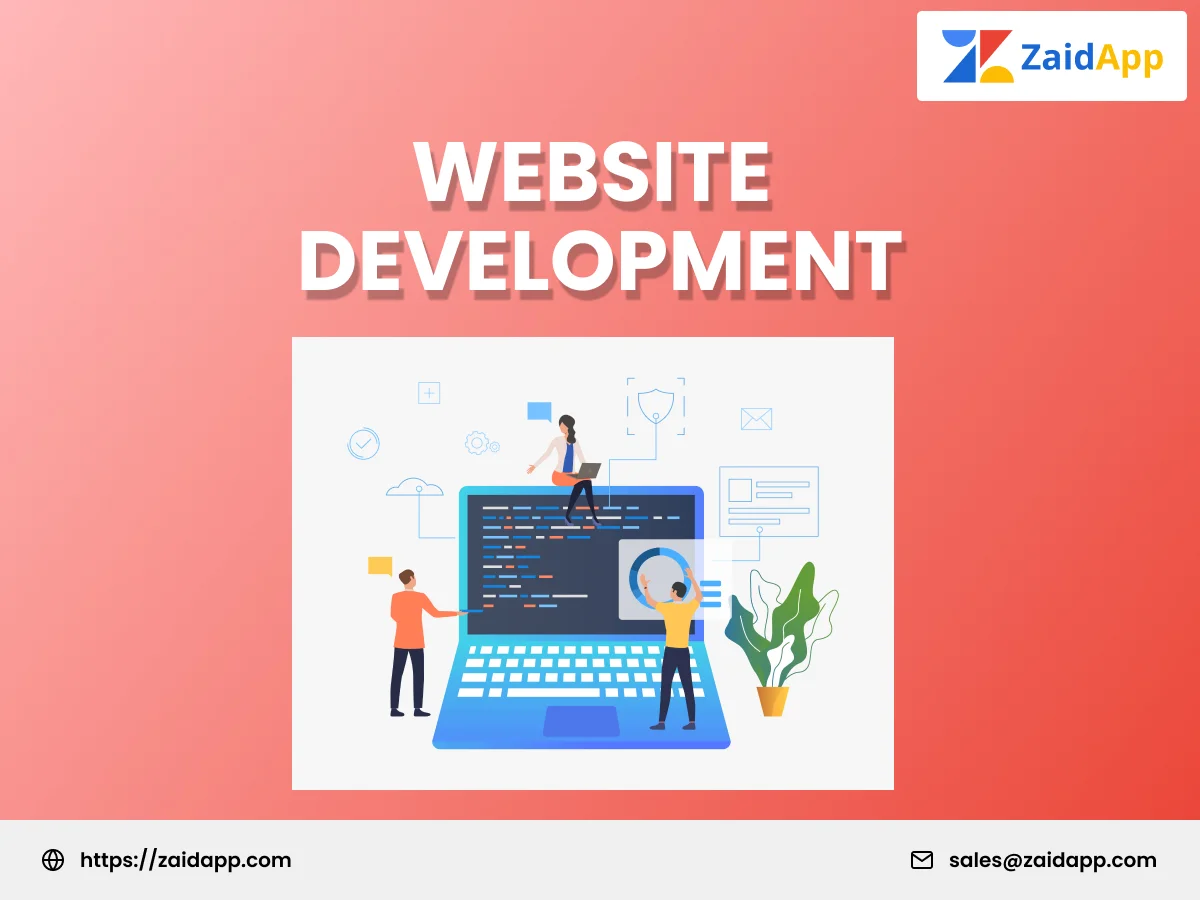Loading

In the modern age of Website Development, establishing a compelling online presence is paramount for businesses and individuals alike. A meticulously crafted website serves as a virtual storefront, providing an invaluable platform to exhibit products, services, and ideas to a global audience. However, achieving an effective website entails more than mere aesthetic appeal; it necessitates strategic planning, technical expertise, and a profound understanding of user experience.

Website development encompasses a wide range of activities involved in creating and maintaining websites. It includes everything from designing the layout and visual elements to writing code and implementing functionality. The goal of website development is to create a seamless, user-friendly experience that engages visitors and drives desired actions, whether it's making a purchase, signing up for a newsletter, or simply exploring content.
A well-developed website serves as the cornerstone of your online presence. It not only attracts visitors but also keeps them engaged and encourages them to return. Here are some key reasons why website development is essential:
Your website is often the first point of contact between your brand and potential customers. A visually appealing and intuitive interface can leave a lasting impression and build trust.
A professionally developed website conveys credibility and legitimacy. It reassures visitors that you are a reputable business or individual worth their time and attention.
A well-designed website is easy to navigate and provides a seamless browsing experience across different devices. This enhances user satisfaction and encourages visitors to explore further.
With the right optimization techniques, your website can rank higher in search engine results, making it more visible to potential customers. This can significantly boost your online visibility and drive organic traffic.
Your website serves as a platform for communicating your brand message, values, and offerings to a wide audience. Clear and compelling content combined with intuitive design elements can effectively convey your message and encourage engagement.
Successful website development involves a combination of technical expertise, creativity, and strategic thinking. Here are some key elements to consider:
With the increasing use of mobile devices, responsive design is essential for ensuring that your website looks and functions seamlessly across various screen sizes and devices.
A clear and intuitive navigation structure is crucial for guiding visitors through your website and helping them find the information they need quickly and easily.
Slow loading times can drive visitors away and negatively impact your search engine rankings. Optimizing your website's performance by minimizing loading times and optimizing images and code is essential for a positive user experience.
Visual elements such as images, videos, and graphics play a crucial role in capturing visitor's attention and conveying your brand message effectively. High-quality visuals that reflect your brand identity can enhance engagement and leave a memorable impression.
Ensuring the security of your website is paramount to protect sensitive data and maintain trust with your visitors. Implementing SSL encryption, regular security updates, and robust authentication measures are essential for safeguarding your website against cyber threats.
The website development process typically involves several stages, including:
This stage involves defining the project scope, identifying goals and objectives, and conducting research to understand the target audience and market trends.
In this stage, designers create wireframes and mockups to visualize the website's layout, structure, and visual elements. The design should align with your brand identity and cater to the needs and preferences of your target audience.
Once the design is finalized, developers begin coding the website using HTML, CSS, JavaScript, and other programming languages and frameworks. They implement functionality, integrate third-party tools and platforms, and ensure cross-browser compatibility and responsiveness.
Testing is essential to identify and fix any bugs, errors, or usability issues before the website goes live. This includes testing for functionality, performance, security, and compatibility across different devices and browsers.
Once the website has been thoroughly tested and approved, it is deployed to the live server and made accessible to the public. Launching the website involves configuring domain settings, setting up analytics tracking, and implementing SEO best practices.
Website Maintenance is an ongoing process that involves monitoring performance, fixing bugs, updating content, and implementing security patches and software updates to ensure optimal performance and security.
Website development is a complex, multifaceted journey that requires careful planning, precise execution, and ongoing maintenance to establish a successful online presence. By prioritizing user experience, functionality, and visual appeal, you can create a site that not only draws in visitors but also engages and converts them into loyal customers or followers. Whether you’re developing a website for your business, portfolio, or personal blog, investing in Professional Website Development Services for Travel can help you meet your goals and make a lasting impression in today’s competitive digital world.